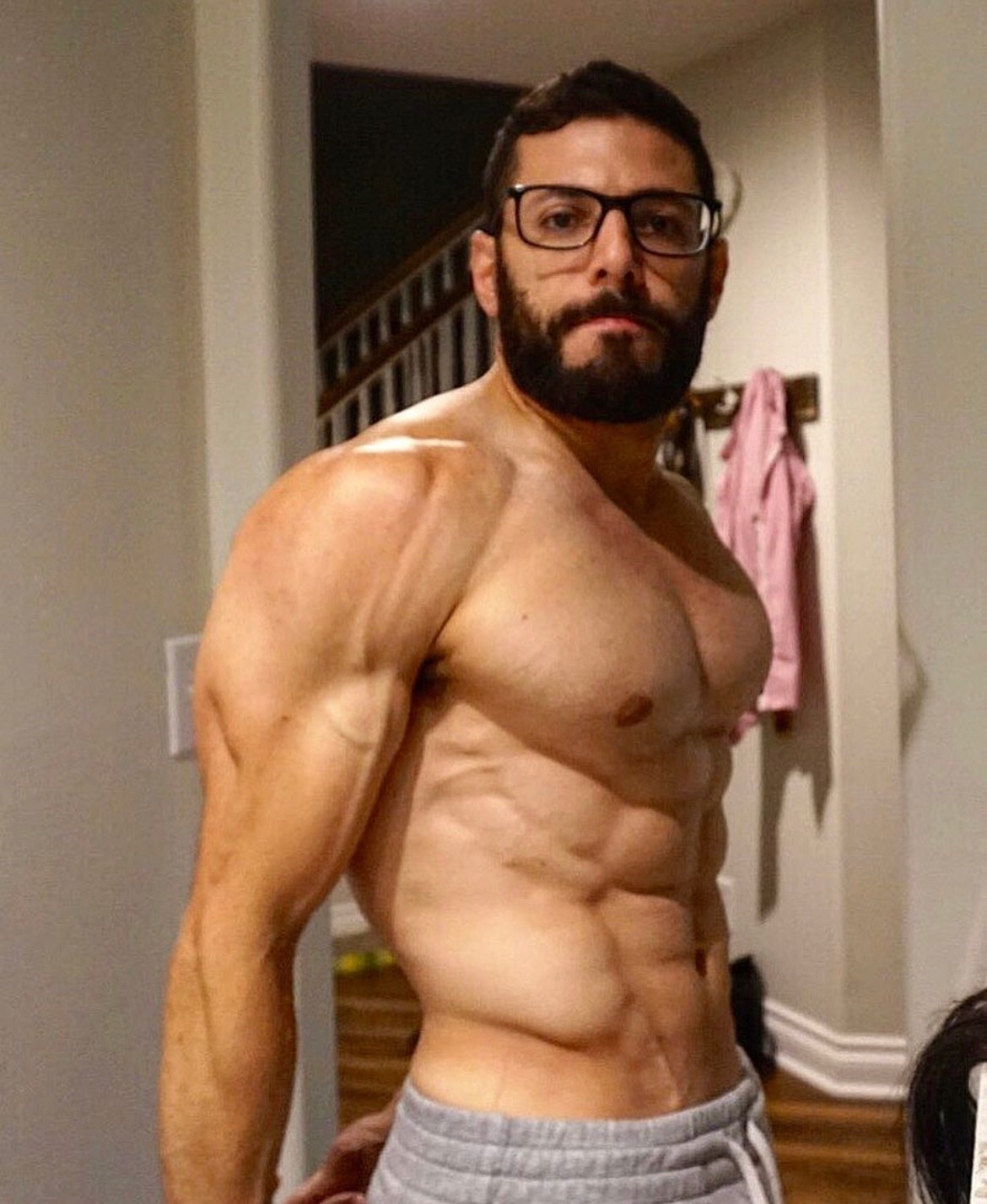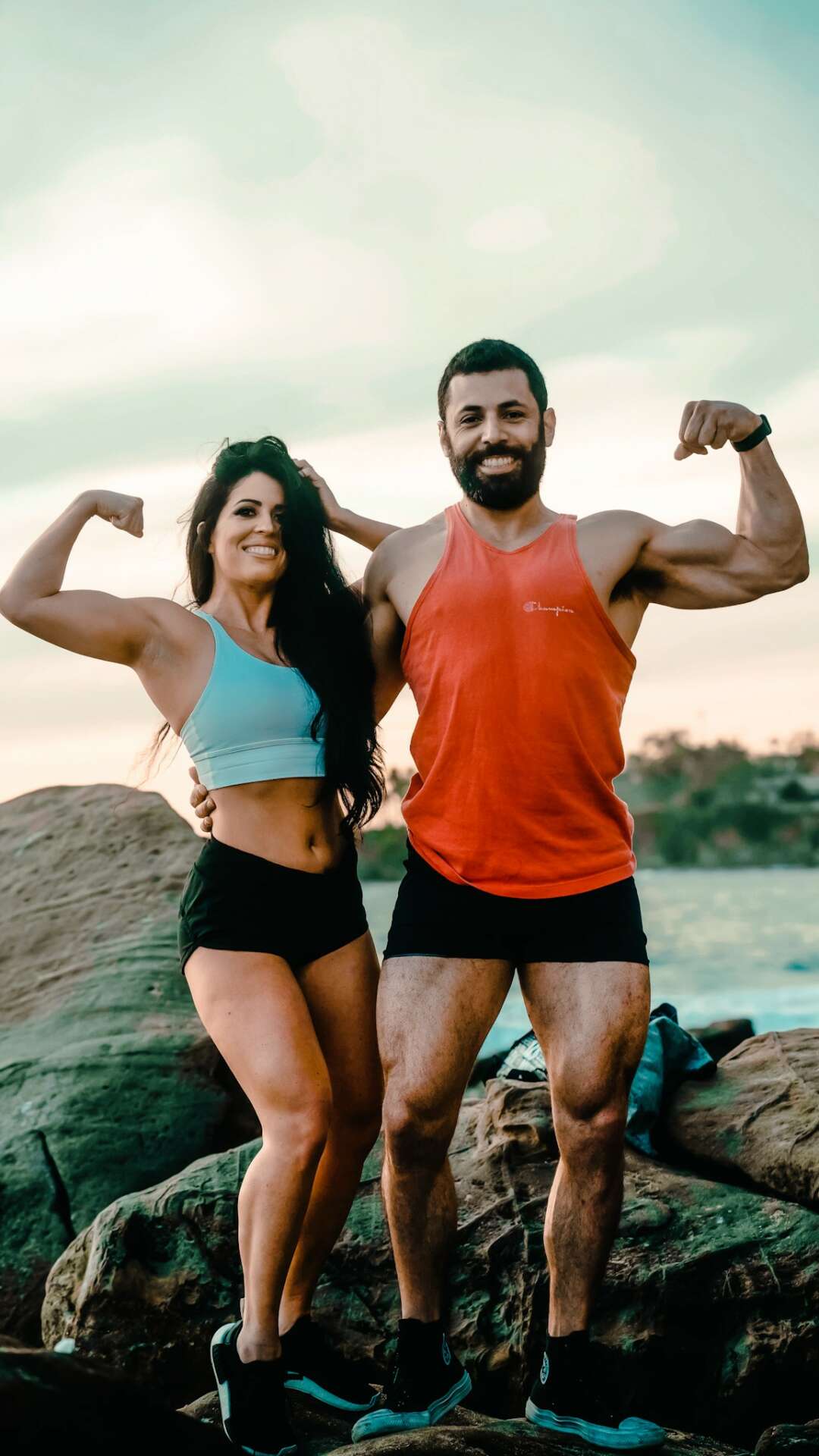Alright – so today we’ve got the honor of introducing you to Kenny Lipton. We think you’ll enjoy our conversation, we’ve shared it below.
Hi Kenny, thanks for joining us today. If you had a defining moment that you feel really changed the trajectory of your career, we’d love to hear the story and details.
Thank you so much for this opportunity to connect with your readers. It’s a pleasure to be able to share my story with them. The defining moment that literally changed my life’s entire direction took place when I was working in the physical therapy field.
At this point in my life, I had worked with multiple populations ranging from burn victims, critical accident patients, general health, and athletes.
Having been in multiple physical therapy offices myself for most of my young life due to my knee, it was only natural that I wanted to give back in the same way that physical therapists were able to do so for me.
I had broken my knee going off the track-blocks during a high school tryout; the injury being bad enough to the point where multiple doctors had told me that I wouldn’t be able to do anything outside of walking, swimming, and bike riding.
Having been an athlete my entire life this was perhaps one of the most devastating cards someone could’ve dealt me.
Ultimately, though, through the help of my physical therapist, I was able to overcome those odds.
I went on to race for UCLA Cycling and am now happily weightlifting and running.
I knew I wanted to be a physical therapist after having experienced that type of a breakthrough.
That is, until I met Him.
Quite honestly, I don’t remember His name, but the impact that He had on me was truly immense.
Let’s just call him Mr. Belmont because at this time I was working in a physical therapy office that sat within a Belmont Village, which is a geriatric facility that also had an in-house hospice care.
I had been there a little over a year by this time and there was a dumbbell rack that had collected dust for the entirety of my employment – not one individual in this Belmont Village was strong enough to lift the dumbbells off that rack.
That is, until Mr. Belmont came strolling in.
I was completing some paperwork when I saw a man with a walker come through our front door.
He didn’t say a word and was making a B-line to the dusty dumbbell rack.
He parked his walker next to it, took two steps towards the rack, ripped two dumbbells right off their hooks, and proceeded to bust out cross-body hammer curls like it was nothing.
I was astounded.
I just stood there watching him; not one grunt coming from him.
After awkwardly staring at him for what seemed way too long, I went over to him and said “You know, for the entire time I’ve been here there hasn’t been a single person who has been able to lift any of these dumbbells off this rack. May I ask what you did when you were younger?”
He put the dumbbells down and responded “I dabbled in bodybuilding and powerlifting when I was younger.”
And then he went right back to lifting his weights.
You see, for the entire time I had been working there I met patients that had a terribly hard time staying strong and healthy.
There was a distinct cycle that took place: patients would come in for physical therapy, use up all their insurance coverage, and then eventually stop only to be later put into hospice care.
They weren’t just patients to me though.
They were people; wonderful people with incredible life stories that truly wanted to get healthier during a time where it was very difficult to do so.
You see, most of these people didn’t take care of themselves like Mr. Belmont had done.
Mr. Belmont was cruising around, while his fellow neighbors were silently fading away.
And as someone who became very close to some of these people, it was devastating to witness.
I wanted – no, NEEDED to do more to help.
And what I had believed to be my life’s calling (to be a physical therapist) had suddenly come into question thanks to Mr. Belmont.
Now, let me just say that physical therapy is a wonderful field full of incredible individuals that on the daily change lives for the better – I had directly been positively impacted in my own life by the physical therapy field.
But, having been in the field, I eventually came to see that I wanted to prevent people from coming into the office in the first place.
In other words, I wanted to be on the preventative side vs. the rehabilitative side when it came to healthcare.
I wanted to help people become more like Mr. Belmont so that their longevity was not only met with long years of life, but long years of QUALITY.
And that’s when my journey in the gym began.


As always, we appreciate you sharing your insights and we’ve got a few more questions for you, but before we get to all of that can you take a minute to introduce yourself and give our readers some of your back background and context?
It’s my pleasure to share with y’all my story. After meeting Mr. Belmont, my wife Sarah Lipton, who now coaches alongside me as a head coach to our company Full Effort Coaching, began to become interested in weightlifting.
It was actually Sarah that initially got me into the gym.
Being a competitive cyclist at that time, that was my main form of exercise, while the gym was primarily used for getting spins in when the weather wasn’t favorable to ride outside.
Then one day on a normal training ride, I got hit by a car ultimately destroying my bike.
I remember thinking, “First, my knee; now this.”
Fortunately, after spending a couple hours at the hospital, I was able to walk away with minimal injuries.
But, I didn’t have a bike to come home to and no outlet to keep myself in shape.
Which is when Sarah introduced me to the gym.
The rest is history.
I instantly became in love with weightlifting; so much so, that I actually made it my primary form of exercise.
Fast forward 8 years later and we are now both head coaches to our own coaching company where we specialize in not only training and nutrition, but also functional health.
From gut health to hormonal health, training and nutrition are just two pieces to a more complex puzzle that is your health.
The one thing we noticed that was heavily lacking in the fitness industry was the attention to internal health.
Often what you see on social media and mainstream fitness as a whole is a huge focus on external appearance without much context instead of Calories-In vs. Calories-Out (CICO).
Most people miss the point that CICO is only one part of the puzzle and is actually a piece that sits superficially above more important pieces that often get ignored, such as your mental and internal health.
We wanted to bring more attention to the fact that health isn’t simply eating less or more calories, but rather it’s about creating a sustainable lifestyle that compliments you as a person.
In fitness, we far too often see people trying to fit inside a box that they don’t fit in, ultimately leading them down a road where they either fall off the wagon and give up or, even worse, inadvertingly negatively affect both their physical and mental health.
At Full Effort Coaching, we provide specific context and clarity to everything we do so that our clients don’t walk away better educated and fulfilled.


Learning and unlearning are both critical parts of growth – can you share a story of a time when you had to unlearn a lesson?
Like most people, in the very beginning of my fitness journey I was very scale focused.
In fact, I had a goal weight that intended to hit, which was 195 lbs because my favorite bodybuilder at the time, Frank Zane, was 195 lbs stage weight.
I remember how hopeful I was when I found out I was about the same height as Frank and thought “I can totally pull this off.”
I put all my effort into cardio because I thought that was how you got lean.
Not to mention I still had an internal bias towards cardio since I had spent most of my life riding bikes; not to mention racing them.
A couple months went by and I had finally it my goal weight, but I can’t tell you how massively disappointed I was.
I was 195 lbs, but looked nothing like I had intended to look.
I was primarily skinny fat with little muscle or progress to show.
The only claim to fame I had was that I hit 195 lbs.
It was a very hard lesson to accept because that was the moment I realized the scale was massively oversold in terms of its importance.
I took a step back from cardio and began to focus more on weightlifting and pushing myself till failure.
I also began to eat more; WAY more.
What ended up resulting is that I LOST weight, but eventually achieved the look that I was hoping for.
I was no where near 195 lbs, but I LOOKED like I was 195 lbs.
I realized that a lot of what I had learned throughout my life from mainstream fitness was blatantly misconstrued.
For example, the scale can be useful, but it definitely isn’t everything.
In fact, as a functional health coach, it’s one of the last things we look at it to determine someone’s progress.
And where do I begin with food . . .
Food has been heavily demonized in so many ways that it almost has become paralyzing in trying to figure out what is good vs. bad.
The truth is that food is simply energy and we need energy to not only survive, but also thrive.
A lot of people are good at surviving, but a lot do not do well with thriving.
A lot of people are massively under eating, which negatively adds on to their overall stress levels and down-regulates their metabolism.
Over eating can be an issue for some, but I am confident in saying that a majority of people most likely deal with the negative consequences of chronic stress, which can be perpetuated by under-eating.
Most people don’t understand that their metabolism is adaptive meaning that it’ll adjust its metabolic rate based on how much energy is coming in and out of your body.
I used to have a terrible relationship with food because of this misunderstanding of CICO – I thought if I wanted to lose fat, then I needed to continue to eat less.
And if I stopped losing fat, then I needed to eat even less . . . and less . . . and less.
That cycle continued until I realized I was eating sub-1000 calories.
I was unhealthy and GAINING fat.
And as a coach, this is a very common issue that I deal with.
Again, CICO is just one very superficial piece of a more complex puzzle that’s grounded in your overall health.
Food is something that’ll always be a part of your life.
Whether it’s the holidays, birthdays, or even just sitting around with your friends; you’ll most likely have some sort of food available to you.
Food is meant to be enjoyed; to be part of your memories.
When it comes to your goals, what’s important is that you eat foods that you not only enjoy, but that’s full of micronutrients.
That’s not to say, though, you can’t enjoy the occasional treat.
My personal favorite are donuts and I visit Round Rock Donuts pretty frequently because I enjoy them and know that I can still accomplish my goals while still eating them.
Any stories or insights that might help us understand how you’ve built such a strong reputation?
First off, there isn’t a day that goes by where both Sarah and I aren’t grateful for all the support we have from our clients and followers.
It’s beyond humbling and we deeply appreciate all of them.
If I were to pick one thing that has helped us build a reputation, I think it would be our willingness to being open and honest about our experiences and trying our best to educate those who wish to learn.
I think having clarity is by far one of the most important things to have when moving forward in life, no matter what it is.
And because we want the best for our clients and followers, we try to provide as much clarity as possible.
There are too many individuals selling “secrets” as a means to lure people into their sales pitch.
In reality, there are no secrets.
It’s just a matter of meeting the person where they are in their life/health and building up from there by doing the work.
That’s it.
Contact Info:
- Website: www.fulleffortcoaching.com
- Instagram: https://www.instagram.com/kenny.lipton/
- Facebook: https://www.facebook.com/groups/leanbody4life/
- Youtube: https://www.youtube.com/@fulleffortcoaching2276
Image Credits
We bought these images


